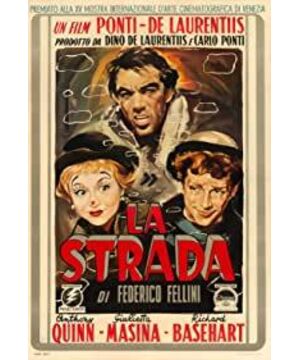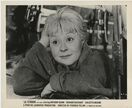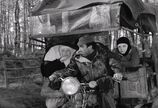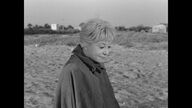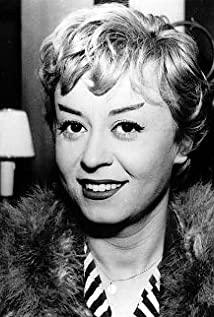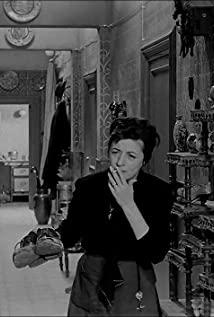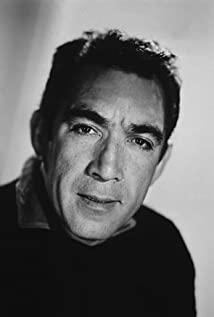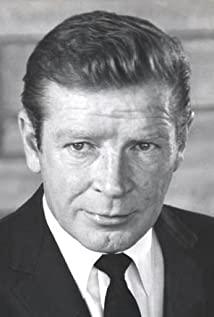It can be said that it is the first Fellini film I have watched, through the tragic fate of the little people who are performing arts, Jessomina's simple, young and elf-like and cute character in the difficult environment, and the male protagonist's performance is only for the sake of hardship. The story of making a living in a big environment deeply touched our sympathy for the little people of that era. The entire film uses depth of field shots and smooth alternation of long and short shots, allowing the protagonist to drive a car through the Italian folk, showing the Italian people's livelihood. In order to make a living, the male protagonist thinks that he did not pay attention to the love for the female protagonist in his heart, which is a true portrayal of the people at the bottom of the time; the female protagonist's cute and clever, lively expression, and loving heart, every era is full of optimism The people who face the cruelty of life; the sincere friendship between the fool and the heroine, the fool's letting go of the heroine, the accidental death of the fool is too sad, and he also treats life with the same positive optimism as the heroine~ It's a pity, this is the era, even if the fate of the people in the circus is so hard, they still have to laugh at people for a living. The last shot of the film can be said to be included in the history of the film. The male protagonist lies on the beach at night, crying about his self-blame for the death of the female protagonist. Then the camera slowly pulls back, and with the sound of music, it gradually fades our feelings towards the male protagonist. Grief and remorse for oneself highlight the smallness and loneliness of people.
View more about La Strada reviews


